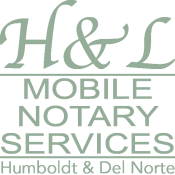Credible Witness Criteria: What can be done when a person has no acceptable proof of identity?
Sometimes people don’t have proof of identification, or it is very difficult to acquire. In these cases, the use of one or two credible witnesses may be an option. Please see the following extracts from the 2016 Notary Public Handbook published by the California Notary Public Section, Secretary of State, Alex Padilla
B. Oath of a Single Credible Witness– The identity of the signer can be established by the oath of a single credible witness whom the notary public personally knows. (Civil Code section 1185(b)(1)) The notary public must establish the identity of the credible witness by the presentation of paper identification documents as set forth above. Under oath, the credible witness must swear or affirm that each of the following is true (Civil Code section 1185(b)(1)(A)(i)-(v)):1. The individual appearing before the notary public as the signer of the document is theperson named in the document;2. The credible witness personally knows the signer;3. The credible witness reasonably believes that the circumstances of the signer aresuch that it would be very difficult or impossible for the signer to obtain another form ofidentification;4. The signer does not possess any of the identification documents authorized by law toestablish the signer’s identity; and the credible witness does not have a financial interest and is not named in the document signed.
Note: The single credible witness must sign the notary public’s journal or the notary public must indicate in his or her journal the type of identifying document, the identifying number of the document, and the date of issuance or expiration of the document presented by the witness to establish the identity of the witness. (Government Code section 8206(a)(2)(D))C. Oaths of Two Credible Witnesses– The identity of the signer can be established by the oaths of two credible witnesses whom the notary public does not personally know. (Civil Code section 1185(b)(2)) The notary public first must establish the identities of the two credible witnesses by the presentation of paper identification documents as listed above. Under oath, the credible witnesses must swear or affirm under penalty of perjury to each of the things sworn to or affirmed by a single credible witness, as set forth above. (Civil Code sections 1185(b)(2)and 1185(b)(1)(A)(i)-(v))Note: The credible witnesses must sign the notary public’s journal and the notary public must indicate in his or her journal the type of identifying documents, the identifying numbers of the documents, and the dates of issuance or expiration of the documents presented by the witnesses to establish their identities. (Government Code section 8206(a)(2)(E))
